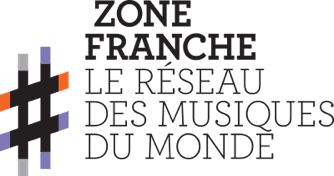This article is a result of a collaborative project between #AuxSons and Alejandro Abbud Torres Torija, lecturer at Sciences Po Paris Campus Reims, and regular contributor to #AuxSons. As part of the class “Sounds of the world : Music as mirror of the intimate and the collective”, international students from Sciences Po Paris Campus Reims prepared articles presenting contemporary music from different parts of the world in connection with recent socio-political events.
The annual Jazz’n Klezmer Festival in France has this year been adapted to offer online musical events during the pandemic, presenting one concert per month, with artists such as Collectif Medz Bazar, Macha Gharibian Trio, Mathias Levy Trio, Norig & No Gypsy Orchestra and Yakir Arbib. The festival aims to spread the revival of Klezmer in all its contemporary forms. Klezmer is a genre of music that has both faced and been formed by challenging times. Klezmer offers a portal through which history and memory can be explored as well as an opportunity to get to know the collective unconscious of a population with a history like no other.
When listening to Klezmer, one embarks on a journey through the components of Jewish identity. The repetitive rising and falling of the melodies reminds us of the defiance with which the musical genre has faced setbacks; it reflects the historical struggles of the Jewish people as a whole. The music is often characterized by a feeling of emotional yearning and rawness as it conveys both ecstasy and grief.
Although the pandemic has undoubtedly posed a challenge to the music sector as a whole, it is certainly not the first challenge Klezmer has faced. Historically passed down through families, much of the tradition was destroyed during the Holocaust, later to reemerge from archived recordings and surviving musicians in the U.S. One may wonder what makes this genre so resilient. Be it through pogroms, emigration or wars, Klezmer seems to be able to regain popularity and adapt to its surroundings. This could be explained by its ability to make the listener reconnect with him or herself, bringing the echoes of the past into the present. Following the assimilation of both American and German Jews after violent pogroms in Europe, the search for identity stimulated the revival of this dying genre. Collective memory is a central part of the Torah, instructing the Jewish people to remember significant biblical events which contribute to a collective sense of Jewish identity. As historically persecuted people, this notion of a Jewish collective memory has offered both solace and a sense of community through the most challenging of times. Its expressive melodies emphasize raw emotions by imitating the human voice through the use of musical ornaments (dreydlekh) such as krekhts (or sobs).
While the sense of familiarity and emotions communicated through Klezmer transcend both time and space, the music itself has been heavily influenced by different genres, cultures and time periods. Born from the musical traditions of the Ashkenazi Jews of Central and Eastern Europe, it has been heavily influenced by traditional music from this region, in addition to Ottoman music, religious Jewish music, German and Slavic folk dances and Baroque music. During the Klezmer revival of the 70’s, musicians began increasingly incorporating other genres such as jazz and punk.
The decision taken by the Jazz n’ Klezmer festival to move their events online presents just another example of how the genre has managed to adapt to its ever-changing environment. Along with the fusion of Klezmer music with the globally popular genre of Jazz, this Jewish musical tradition is showing no sign of disappearing.
the authors
Maria Gloerstad is 21 years old and of Norwegian/Italian origins. She is currently pursuing an undergraduate degree at Sciences Po Paris in Reims. She has always found music and its connection to history and society very interesting. She is also passionately interested in Judaism, and has taken a Hebrew summer course at the University of Haifa.
Tom Knowles comes from Lancaster, northwest of England. He is currently studying political science at Sciences Po Paris campus Reims but has had a keen interest in music all his life. He has played the piano and guitar for around 10 years and loves to play pop, rock, funk, and jazz music. Whatever the style, he is fascinated by the way in which we as a society interact with music.


